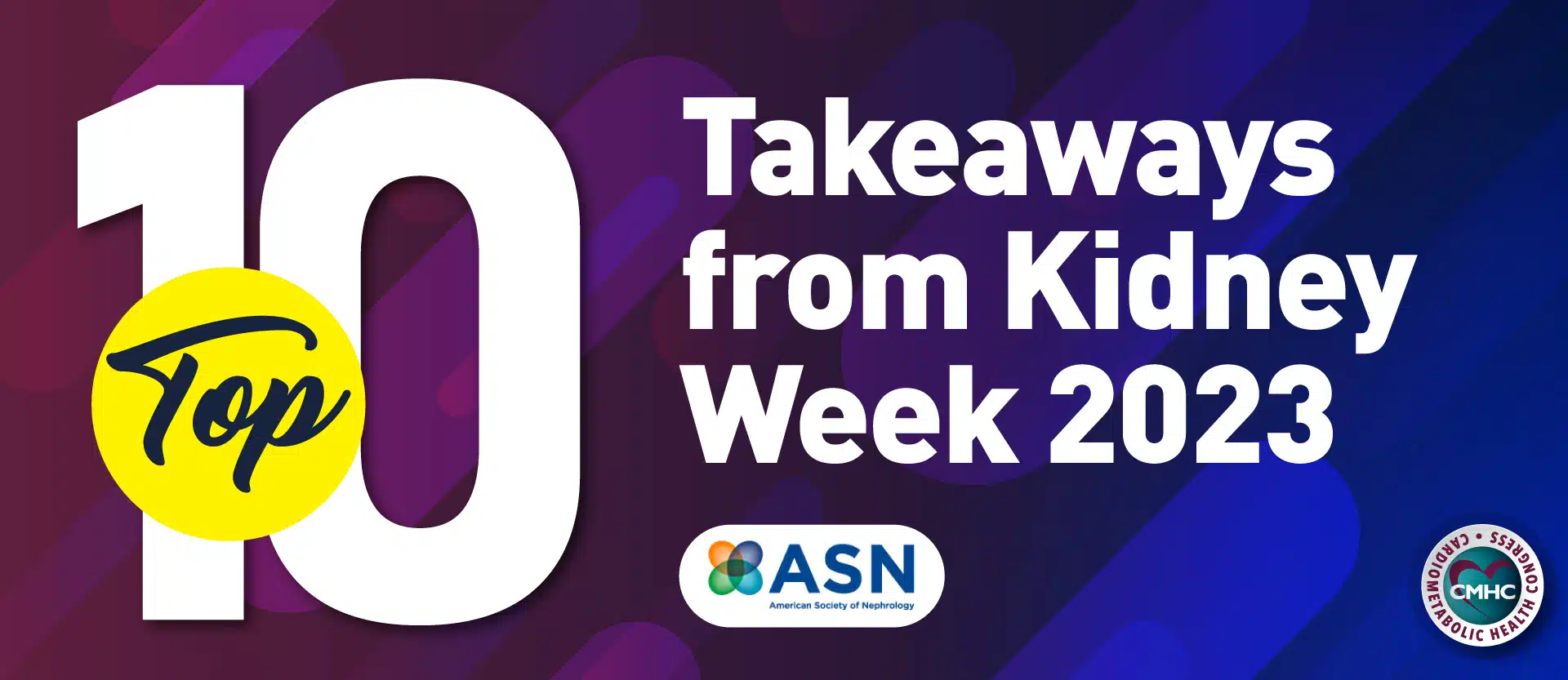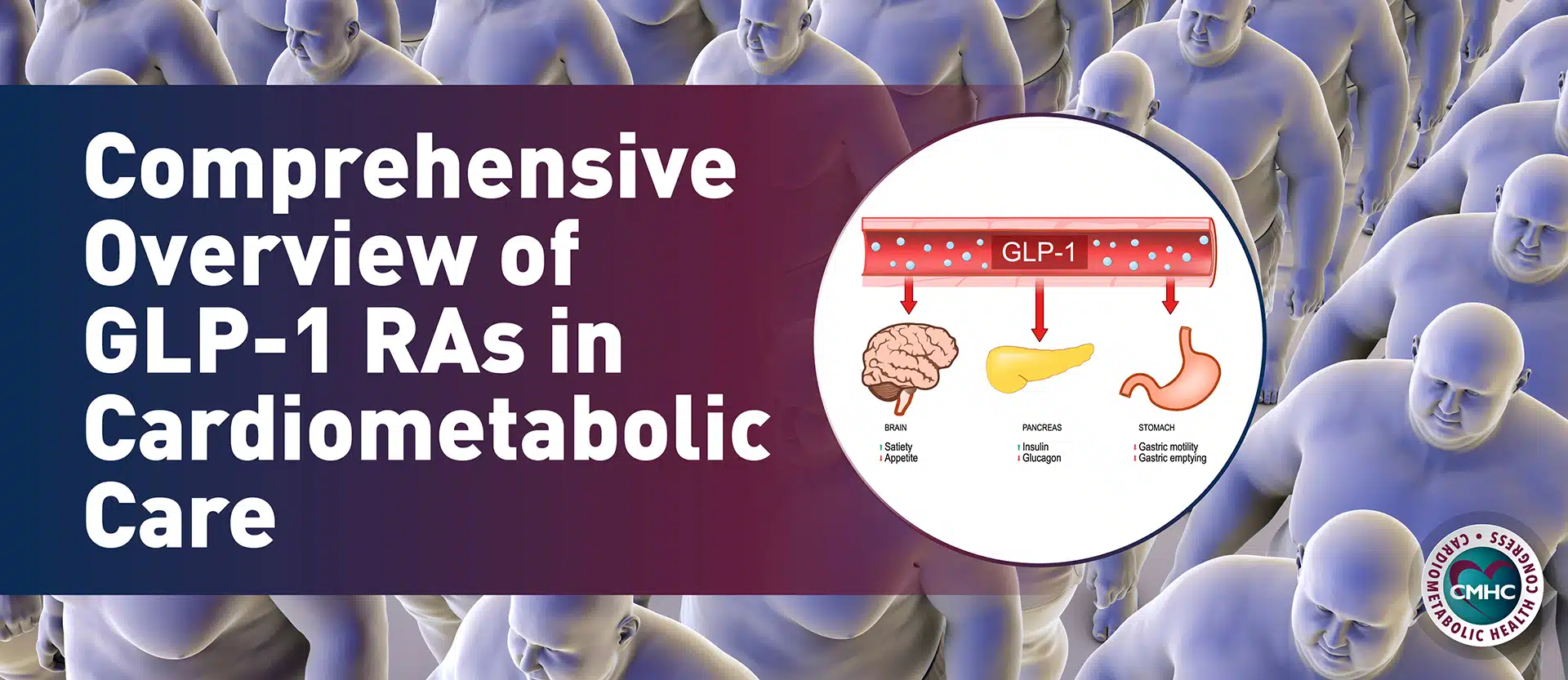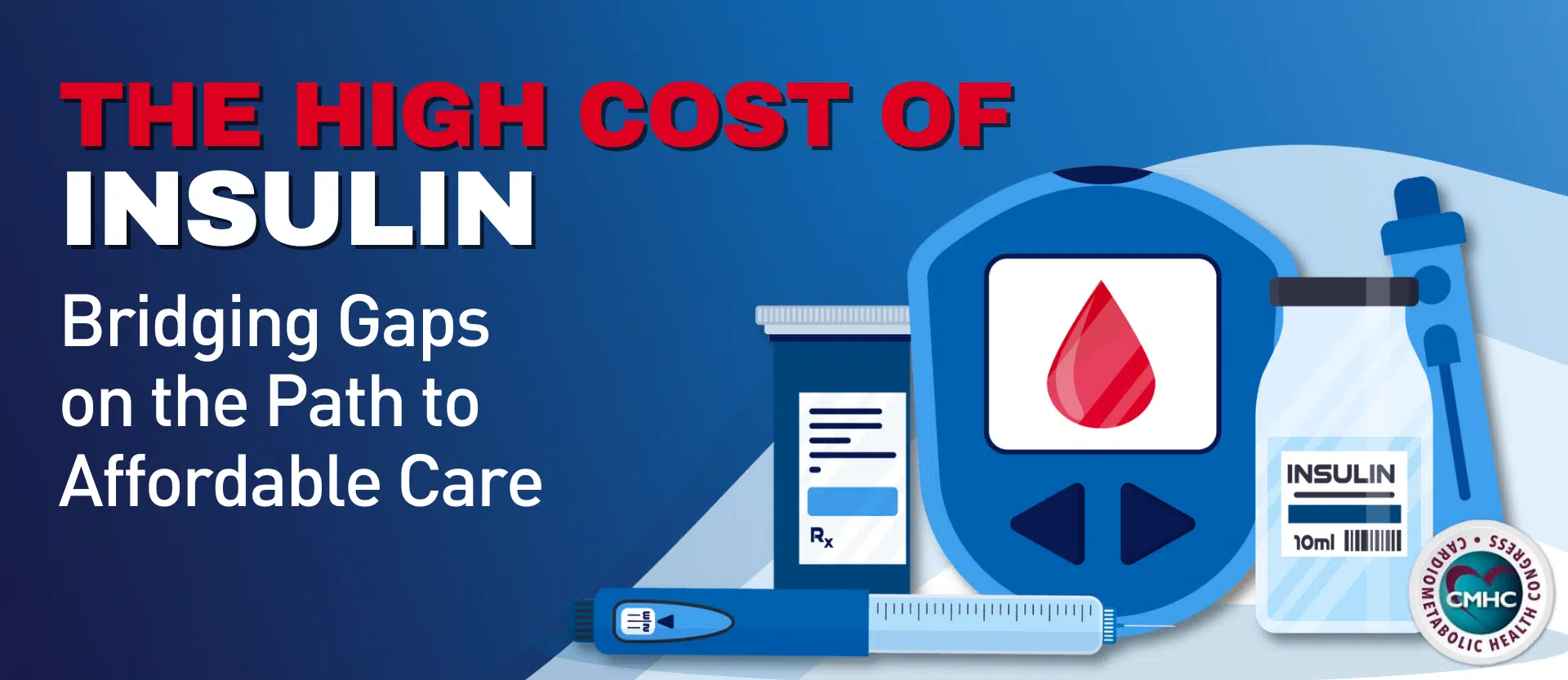More than 12,000 attendees flocked to Philadelphia, Pennsylvania, on Nov. 2-5, 2023, to gain perspective on the latest advances in the management of glomerular disease. Kidney Week 2023 not only served as a platform for the latest news and updates in the field but also marked the final meeting of the year for practitioners in the specialty of nephrology.
The late-breaking sessions at this year’s gathering brought forth multiple new trials with clinical implications, including SPARTAN, DUPLEX, ALCHEMIST, ZENITH-CKD, and more. To celebrate the field’s advancements, the Cardiometabolic Health Congress (CMHC) compiled a list of the most important announcements and themes to emerge at Kidney Week 2023.
These are the top ten takeaways from Kidney Week 2023:
- Widespread disparities persist in the field of nephrology.
Key findings presented at the conference included disparities in access to kidney transplantation and waitlisting based on race and neighborhood characteristics, racial and ethnic differences in incident chronic kidney disease (CKD), and the use of motivational strategies to improve dialysis nonadherence among African American patients. Kidney Week 2023 emphasized the need to address disparities in nephrology to improve patient outcomes and equitable care. - SPARTAN trial findings support use of sparsentan as first-line treatment for IgAN.
The preliminary data from the SPARTAN trial, presented at Kidney Week 2023, demonstrated that sparsentan, a non-immunosuppressive therapy, is safe and well-tolerated as a first-line treatment for immunoglobulin A nephropathy (IgAN). The trial showed that sparsentan targets the endothelin-1 and angiotensin-2 pathways, significantly reducing proteinuria and total body water over 12 weeks. This promising first-line therapy provides essential insights into the potential treatment of IgAN. - Cardiovascular-kidney-metabolic syndrome and other cardiometabolic health conditions have become a focal point.
The increasing prevalence of cardiometabolic health conditions has led to significant reform in their management. Recent technological advances, pathophysiology, and pharmacotherapy have contributed to a near-universal recognition of the overlap between cardiovascular, kidney, and metabolic diseases. The American Heart Association has introduced a 5-stage system for identifying and managing cardiovascular-kidney-metabolic syndrome. - Depression symptoms linked to increased hospitalization rates in patients with CKD.
Depressive symptoms in patients with chronic kidney disease (CKD) are associated with an increased risk of hospitalization. Both dialysis and non-dialysis patients with depressive symptoms are at a greater risk of hospitalization. Depression is more prevalent in patients with CKD compared to the general population, and it has been linked to an elevated risk of mortality. - Dr. Rajiv Agarwal spotlights albuminuria as an early marker of kidney damage.
Director of the Stanford Glomerular Disease Center, Rajiv Agarwal, MD, emphasized the importance of raising awareness about early detection and treatment of kidney diseases. He highlighted the need to shift from simply measuring albuminuria to implementing interventions early on to modify cardiovascular and kidney risks. He believes this shift in approach will change the behavior and thinking of primary care physicians and improve patient outcomes. - MIRROR trial supports urate-lowering agent for gout and uncontrolled hypertension.
Data from the MIRROR trial showed that the use of pegloticase plus methotrexate was associated with more significant reductions in systolic blood pressure compared to pegloticase alone in patients with gout and uncontrolled hypertension. Lowering uric acid levels with pegloticase can potentially lower blood pressure, especially in younger individuals. The combination of pegloticase and methotrexate may have a role in regulating blood pressure and reducing the overall burden of uncontrolled gout. - Measuring both albuminuria and eGFR improves renal risk stratification in diabetes and chronic kidney disease.
Measuring both estimated glomerular filtration rate (eGFR) and albuminuria is vital for identifying the risk of major adverse kidney disease events in patients with diabetes and chronic kidney disease (CKD). The prevalence of major adverse kidney disease events is higher in patients with CKD who have baseline eGFR and albuminuria measurements. Monitoring albuminuria is essential for accurately assessing the severity of CKD and identifying appropriate treatment strategies. - ALCHEMIST trial pits spironolactone against placebo, shows potential decrease in HF hospitalization.
The ALCHEMIST trial results indicate that using spironolactone did not impact the risk of adverse cardiovascular outcomes in patients with chronic kidney disease on hemodialysis. The trial compared spironolactone, approved for managing heart failure and blood pressure, to placebo and found that spironolactone did not significantly reduce the study’s primary composite endpoint. However, there was a potential reduction in the risk of heart failure hospitalization, which was one of the individual components of the composite endpoint. - DUPLEX trial results give patients with FSGS a glimmer of hope.
The DUPLEX trial studied the use of sparsentan in patients with focal segmental glomerulosclerosis (FSGS), a rare kidney disease with limited treatment options. Although the trial did not meet its primary endpoint, it showed potential benefits in other outcomes, such as an increased percentage of patients with partial remission of proteinuria. Sparsentan could potentially slow disease progression and improve long-term outcomes for FSGS patients. - More than half of anemic patients with NDD-CKD aren’t treated.
A recent study analyzing the management of anemia among non-dialysis-dependent chronic kidney disease (NDD-CKD) patients revealed that over 50% of these patients did not receive any treatment for their anemia. The study highlights the need for better management and treatment of severe anemia in CKD patients. The findings serve as a call to action to improve the treatment of anemia in this patient population.


















